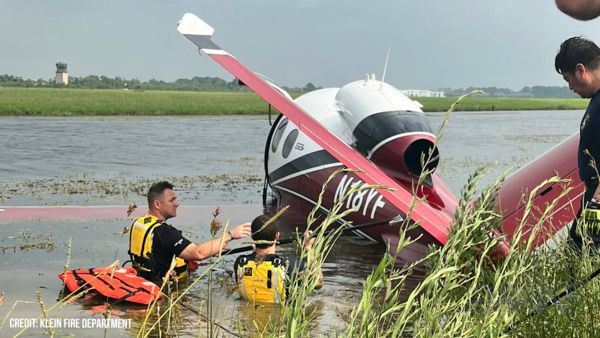Sun, Dec 07, 2008
Advertisement
More News
 ANN's Daily Aero-Linx (05.26.24)
ANN's Daily Aero-Linx (05.26.24)
Aero Linx: National Aeronca Association We are dedicated to supporting the design and preserving the history of Aeronca aircraft. Founded by Jim Thompson and fostered by his leader>[...]
 Klyde Morris (05.24.24)
Klyde Morris (05.24.24)
Klyde Sounds Like He's Defining An 'Influencer' FMI: www.klydemorris.com>[...]
 ANN's Daily Aero-Term (05.26.24): Parallel ILS Approaches
ANN's Daily Aero-Term (05.26.24): Parallel ILS Approaches
Parallel ILS Approaches Approaches to parallel runways by IFR aircraft which, when established inbound toward the airport on the adjacent final approach courses, are radar-separate>[...]
 Airborne 05.20.24: Van's BK Exit, Bud Anderson, Air Race Classic
Airborne 05.20.24: Van's BK Exit, Bud Anderson, Air Race Classic
Also: ALPA Warns, Aviation Meteorology Reference, Jennifer Homendy Re-Ups, CAF Tampa Bay The court has approved Van's Aircraft's bankruptcy reorganization plans, settling a stressf>[...]
 Airborne-NextGen 05.21.24: Liberty Lifter, Cavorite Flies!, Eurodrone
Airborne-NextGen 05.21.24: Liberty Lifter, Cavorite Flies!, Eurodrone
Also: AMA National Fun Fly, Skyfire SF2, Echodyne Gets BVLOS, Av Meteorology Reference General Atomics' run at developing the Liberty Lifter ground effect aircraft has been put to >[...]
blog comments powered by Disqus




